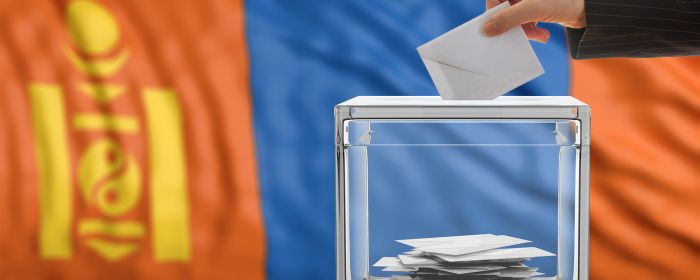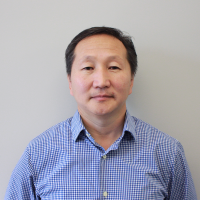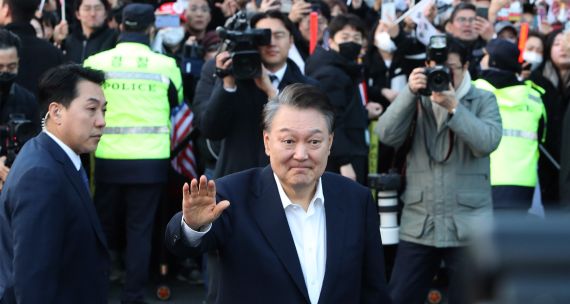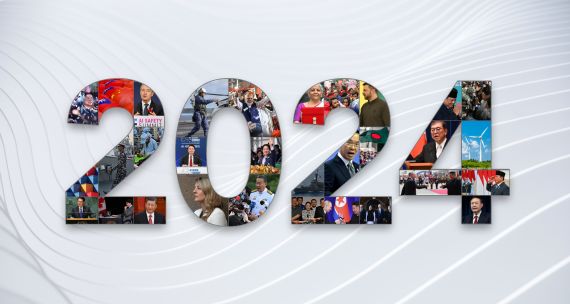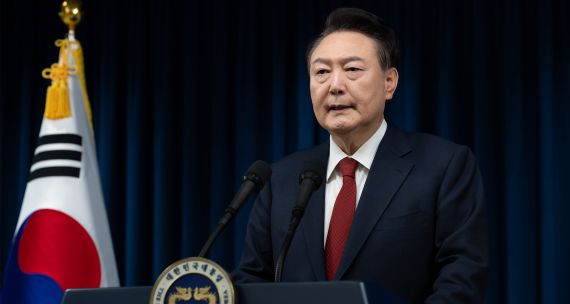Mongolia held a regular parliamentary election on June 24, becoming the second Asian country to hold a nation-wide election amidst the COVID-19 pandemic. And despite being surrounded by two hard-hit countries – China and more recently Russia – Mongolia is the only country in the region to have prevented community spread of the virus. Despite a variety of safety measures put in place that caused long waiting lines at the polls, the parliamentary election concluded with 73.6 per cent voter turnout – the highest since 2000.
The incumbent ruling party, the Mongolian People’s Party (MPP), won 62 out of 76 parliamentary seats and 44.9 percent of the vote, ensuring it will remain in power for the next four years. The main opposition party, the Democratic Party (DP), secured 11 seats and 24.5 per cent of the vote while two small parties and an independent candidate each won the remaining three seats representing 30.6 per cent of the vote.
Prelude: President’s concerns vs. others’ support
On March 25, President Battulga Khaltmaa from the Democratic Party (Mongolia has a semi-presidential system, where the president is elected at a different time then the parliament), suggested the parliamentary election be postponed and proposed re-allocating the election funds to provide economic relief and stimulus packages to help the country deal with the immediate economic consequences of the pandemic and a looming recession. Except for the Mongolian Green Party, none of Mongolia’s political parties were supportive of the presidential plea.
The prime minister and MPP Chairman Khurelsukh Ukhnaa also opposed the proposal, arguing that the pandemic had not reached a critical level requiring cancelling the election. All political parties agreed instead to comply with health and safety guidelines issued by the State Emergency Commission that had been implemented during the internal nomination process. On April 29, President Battulga once again unsuccessfully pressured the General Election Commission to postpone the election as elections can only be postponed when a nation-wide state of emergency is declared by the State Ikh Khural, Mongolia’s parliament.

Mongolia's Prime Minister Ukhnaa Khurelsukh, wearing a face mask, votes at a polling site in Ulaanbaatar, the capital of Mongolia on June 24, 2020. | Photo: Ambasuren Byamba-Ochir/AFP via Getty Images
Interestingly, the successful South Korean legislative election held on April 15 served as a model for Mongolia. The South Korean election was carefully studied by the Mongolian General Election Commission and the State Emergency Commission, which co-ordinated the country’s response to the outbreak. A detailed case study, as well as news about South Korean elections, were circulated widely in Mongolia, and the General Election Commission communicated directly with its counterparts in South Korea. The Mongolian State Emergency Commission issued special procedures ahead of the election that were similar to South Korea’s, requiring, for example, increased sanitation of electoral stations and temperature checks for each voter, as well as mandatory masks and gloves and social-distancing of 1.5-2 metres.
What contributed to MPP’s victory?
The June election marked the first time since Mongolia adopted a democratic constitution in 1992 that the MPP won a supermajority (two-thirds of the seats) in two consecutive parliamentary elections. It won 65 seats in 2016 and 62 in 2020. Several factors were behind the MPP’s reelection.
Firstly, the MPP successfully implemented a number of much-needed policy changes, including passing long-overdue constitutional amendments. After battling with the president, who favours a pure-presidential system that would increase his power over the government, the MPP-led parliament made amendments strengthening the parliamentary system. The new amendments increased the threshold in parliament required for substantial changes, such as replacing the prime minister and cabinet members, as well as long-term social and economic development policies.
Before these amendments, any parliament member(s) could easily initiate a vote of no confidence in the prime minister and approve bills contradictory to long-term developmental policies. And before these changes, the prime minister did not have the power to change cabinet ministers without approval of parliament and consultation with the president. Moreover, the new amendments also reduced the length of presidential terms to a single, six-year term limit.
Secondly, the MPP also successfully reduced air pollution in the capital city by banning the use of low-grade (raw) coal in and around Ulaanbaatar, which significantly reduced choking winter air pollution and was much appreciated by city residents. And the government’s early and decisive preventative measures to contain the spread of COVID-19 have so far been successful. As of July 14, Mongolia reported only 243 imported cases, 204 of which are recovered, and no deaths. These policy achievements were praised by the public and contributed to the MPP’s reelection.

Supporters hold a banner featuring candidates of the Mongolian People's Party at a pre-election campaign event in Ulaanbaatar, the capital of Mongolia, on June 4, 2020. | Photo: Ambasuren Byamba-Ochir/AFP via Getty Images
Lastly, Mongolia’s electoral system and COVID-19-related emergency restrictions constrained the opposition and smaller parties while conferring significant advantages to the ruling MPP. Unlike during the 2016 election, which relied on a mixed-proportional system, Mongolia now uses a majoritarian (multi-member plurality) electoral system, which provides more opportunities for the two major parties and allows a disproportionate weight to the country’s outlying regions, despite 50 per cent of the population residing in the capital. The majority of seats, 52 out of 76, are allocated to sparsely populated rural districts, while there are only 24 seats for the capital city.
Because all small parties lack networks and supporters in rural areas, they mostly competed in urban centres and were unable to campaign in more isolated provinces. As a result, the newly established National Labour Party, for example, won only one seat despite its strong policy-oriented platform and active campaigning. It won 1.3 per cent of the seats for 5.2 per cent of the vote while the MPP won 82.6 per cent of the seats for 44.5 per cent of the vote.
Mongolia’s state of emergency also further constrained opposition parties from campaigning widely. Since last March, political parties have been restricted from organizing large public gatherings, and candidates’ interactions with voters were limited due to safe-distancing measures. In contrast, ruling party officials at the national and local governments were able to reach out more easily and had more exposure to voters as they are handling day-to-day government affairs.
What is next for Mongolia?
On July 1, the parliament and the president approved Prime Minister Khurelsukh’s government, which then appointed the cabinet on July 8. The newly formed government now faces numerous challenges and difficult decisions ahead. The government will have to take decisive steps to reopen the country to international travel and to ease further the economic impacts of the pandemic on businesses and the general population. Because of the current economic recession, the government also needs to reschedule the payment of bonds, estimated at C$3.9 billion, and also seek additional emergency relief funds from the International Monetary Fund (IMF).
The new cabinet will also need to renegotiate an investment agreement with the giant mining company Rio Tinto over the Oyu Tolgoi copper and gold mine, as mandated by Mongolia’s parliament last December. Meanwhile, the government must also reach out to Chinese authorities and buyers to increase commodity exports, especially coal and copper concentrate.
The fact that Mongolia held an election during the pandemic is an important milestone for Mongolia’s democratic identity, particularly given recent internal developments and its geographical position, landlocked between two authoritarian powers – China and Russia. And while both geopolitical giants would welcome the inclusion of Mongolia in their regionalization efforts, such as the Chinese-led Shanghai Cooperation Organization or Russia’s Eurasian Economic Union, Mongolia is looking to maintain a balanced orientation of economic co-operation with its large neighbours while deepening linkages with other democratic countries beyond its immediate neighbourhood.
